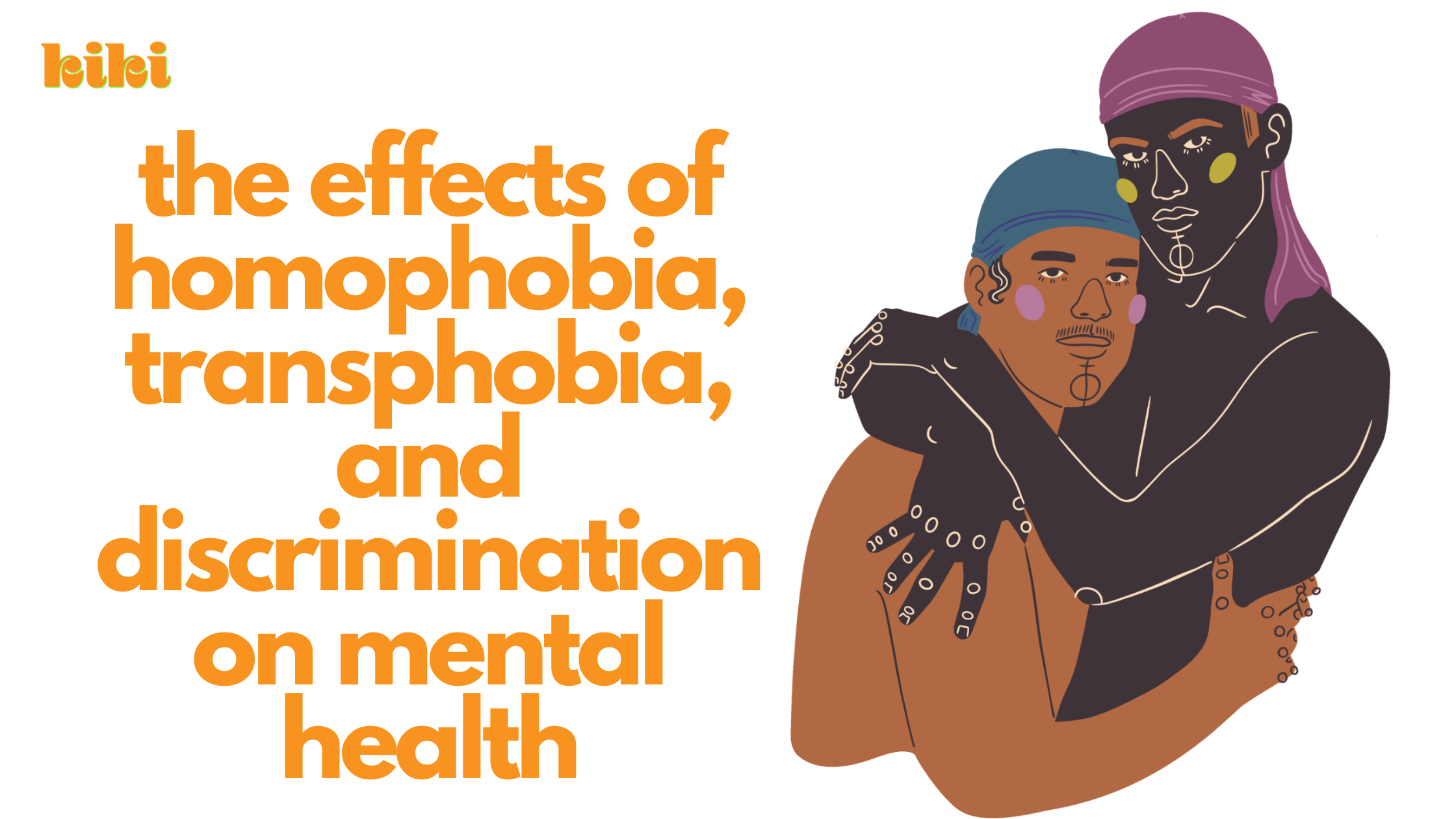Homophobia, transphobia, and discrimination can have severe effects on the mental health of LGBTQIA+ people. These experiences can create a sense of isolation and marginalization, leading to various mental health concerns like depression, anxiety, and post-traumatic stress disorder (PTSD).
The Prevalence of Homophobia and Transphobia
The prevalence of homophobia and transphobia is still high, despite progress made in the last few decades toward LGBTQIA+ rights. According to a report by the National LGBTQ+ Task Force, more than 80% of LGBTQIA+ youth reported experiencing verbal harassment, while 44% reported experiencing physical violence.
Additionally, transgender people are more likely to face violence, with 64% of trans people experiencing sexual assault or other forms of violence in their lifetime.
The Mental Health Effects of Homophobia, Transphobia, and Discrimination
The effects of homophobia, transphobia, and discrimination on mental health are significant and can lead to various mental health issues, including depression, anxiety, and PTSD. Let’s unpack what they can mean to us:
Depression
Depression is one of the most common mental health concerns faced by people who experience homophobia, transphobia, and discrimination. The sense of isolation and marginalization can lead to hopelessness and low self-worth.
According to a study by the National LGBTQ+ Task Force, LGBTQ+ people are twice as likely as their heterosexual counterparts to experience depression.
Anxiety
Anxiety is another common mental health concern faced by LGBTQIA+ people. The fear of being discriminated against, verbally or physically abused can create a sense of anxiety and panic. According to the American Psychological Association, queer folks are more likely to experience anxiety disorders than their heterosexual counterparts.
Post-Traumatic Stress Disorder (PTSD)
PTSD is a severe mental health condition that can develop in people who have experienced a traumatic event. For LGBTQIA+ people, traumatic events like hate crimes, verbal and physical abuse, and discrimination can lead to PTSD. According to a study by the Journal of Traumatic Stress, LGBTQIA+ people are three times more likely to experience PTSD than their heterosexual counterparts.
Suicide
LGBTQIA+ people are at a higher risk of suicide than their heterosexual counterparts. According to a study by the American Foundation for Suicide Prevention, LGBTQIA+ youth are five times more likely to attempt suicide than their heterosexual counterparts. Additionally, transgender people are at a higher risk of suicide, with 41% of trans people reporting having attempted suicide.
How to Support LGBTQIA+ people
It is crucial to support LGBTQIA+ people to reduce the effects of homophobia, transphobia, and discrimination on their mental health. Here are a few ways to support LGBTQIA+ people:
Educate Yourself
One of the best ways to support LGBTQIA+ people is by educating yourself on LGBTQIA+ issues. Learn about LGBTQIA+ identities and the issues they face. This can help you understand their experiences and provide support.
Listen
It is essential to listen to LGBTQIA+ people without judgment. Allow them to share their experiences and feelings, and validate their emotions. This can help create a safe and supportive environment.
Speak Out
Speak out against homophobia, transphobia, and discrimination. Stand up for LGBTQIA+ people and advocate for their rights. This can help create a more accepting and inclusive society.
Use Inclusive Language
Using inclusive language can make a significant difference in creating a welcoming environment for LGBTQIA+ people. Avoid using derogatory language and use gender-neutral language whenever possible.
Support LGBTQIA+ Organizations
Support LGBTQIA+ organizations that work towards promoting equality and reducing discrimination. This can include donating to these organizations, volunteering your time, or attending events.
The Bottom Line
The impact of homophobia, transphobia, and discrimination on mental health is significant and can lead to various mental health concerns like depression, anxiety, and PTSD. It is crucial to support LGBTQIA+ folks by educating ourselves, listening without judgment, speaking out against discrimination, using inclusive language, and supporting LGBTQIA+ organizations.
By creating a more accepting and inclusive society, we can reduce the negative effects of homophobia, transphobia, and discrimination on the mental health of LGBTQIA+ people.
